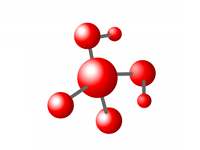

|
"You can't just ask customers what they want and then try to give that to them. By the time you get it built, they'll want something new.
"
- Steve Jobs
|

|
For an adaptive management consulting practice like us, a clear insight into ongoing research and development,
not only into how it shapes IT platforms but also into its potential to create disruption in a given industry sector,
should be as important as other consulting functions like information technology consulting, client relations and marketing.
An adaptive enterprise client of ours not only strives to stay on top of current research in their industry
but also struggles to keep up with the rapid pace of the information technology industry.
Although it's not important to adopt the 'latest and the greatest' in all cases,
it is indeed important to embrace and be able to absorb the resulting gradual as well as disruptive changes.
Rules of the game are changing with the accelerating pace of scientific and technological research and its subsequent adoption.
For an enterprise to survive the resulting turbulence, its people, processes, services,
business/customer intelligence and infrastructure need to be aligned (end-to-end).
It is also required to be agile and adaptive, with a reasonably clear vision of what may or may not be coming down the pipe.
It can be argued that research-intelligence (ability to understand the implications of current and future research)
may be as important as customer-intelligence (adaptive, voluntary or involuntary, customer feedback) to steer through turbulence.
"The last twenty years was the story of digitization. The next twenty years would build on it.
We will see advances in hardware, materials and artificial intelligence, creating new trillion-dollar industries.
World's last trillion-dollar industry was created out of computer code. The world's next trillion dollar industry will be constructed out of genetic code."
(Alec Ross, author of The Industries of the Future)
Nanotechnology can help to considerably improve, even revolutionize, many technology and industry sectors:
information technology, energy, environmental science, medicine, security, food safety, and transportation,
among many others.
Artificial intelligence, machine learning, robotics and swarm Intelligence-based techniques can be used in a number of applications.
For example, swarm intelligence has been applied for data mining, and airlines have used swarm theory to simulate passengers boarding a plane.
Enterprises that utilize AI-enhanced applications are expected to become more diverse,
as the needs for the ability to analyze data across multiple variables,
fraud detection and customer relationship management emerge as key business drivers to gain competitive advantage.
With the advent of web-enabled infrastructure and rapid strides made by the AI development community,
the application of AI techniques in real-time business applications has picked up substantially in recent years.
The ability to be adaptive as well as the ability to forecast change (with reasonable accuracy and timeliness)
is critical to survival in this new era of accelerating advances in science and technology.
You don't want to be left on the wrong side of the next Copernican revolution, whatever it may be for your sector.


© Copyright 2003-2018 Adaptive Enterprise Inc. - All Rights Reserved
|



